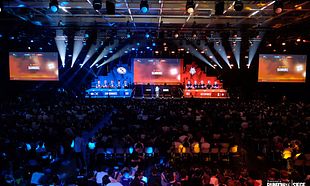Ask anyone who plays 'Fortnite', or indeed any game that they really enjoy, and they'll tell you it can get addictive.
Anyone who gets sucked into a good game arguably has the same experience as anyone sucked into a good book, TV series or movie - time just seems to disappear and you're fully immersed in it. But, like anything else, it can become too much for some people and you wound up devoting yourself entirely to it. That said, does that make it addictive and is that being done with intent?
A class-action lawsuit is being prepared in Canada by two parents who are attempting to sue Epic Games, the creators of 'Fortnite', for knowingly creating a game that was addictive. Speaking to CBC, Alessandra Esposito Chartrand, the lawyer representing the two parents and the minors in the case, says that there's a correlation between 'Fortnite', Epic Games and tobacco lawsuits. In fact, much of their suit is based on a 2015 ruling by the Quebec Superior Court that tobacco companies failed in their duty to inform people that smoking was addictive.
"It's basically the same legal basis," Chartrand told CBC. "It's very centred on the duty to inform." Chartrand also believes that Epic Games actively set out to make the game as addictive as possible, even claiming that they hired psychologists to make it so addictive. Her case argues that because Epic Games knowingly made the game so addictive, they had a duty to warn players of the risk.
Chartrand also cited the decision by the World Health Organisation to classify excessive gaming as a disorder, with academics now currently working on the first psychological test for it. Currently, 'Fortnite' has 125 million players worldwide and generated close to $2.4 billion for Epic Games in 2018. That said, the game has faced a decline and is down 52% year-on-year in revenues, meaning that the game is slowly beginning to lose its lustre with players.
Epic Games has not yet commented on the law suit and is currently facing other legal challenges for 'Fortnite' in the US.









































































